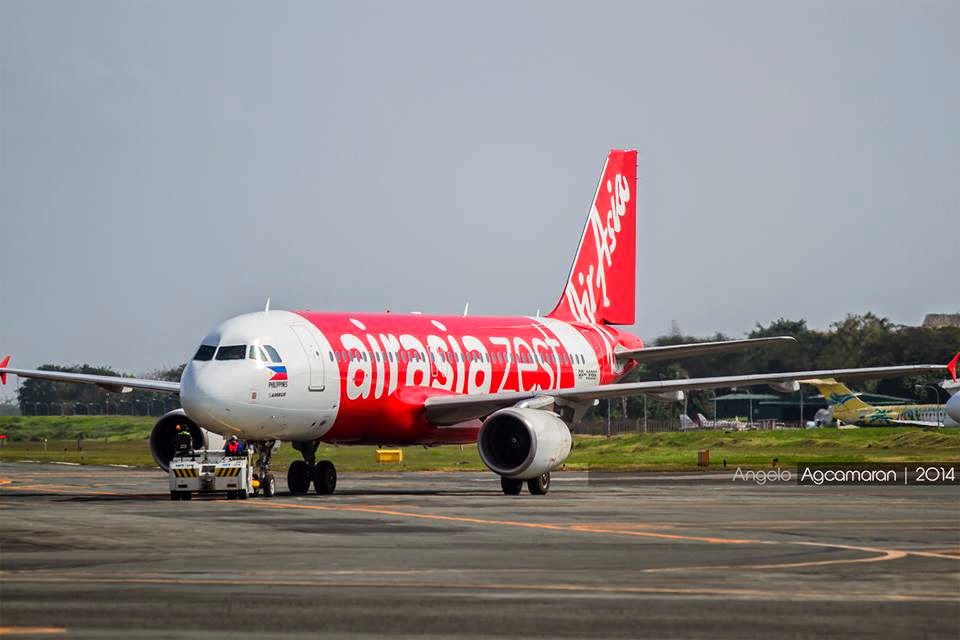Air Asia Pushes for Asean Open Skies
The AirAsia Group led by CEO Tony Fernandes is calling on the Philippines to sign the Association of Southeast Asian Nations multilateral open skies agreement. Open skies within Southeast Asia would enable foreign carriers to launch additional flights in the Philippines that would create a free-market environment in the airline industry to drive tourism, increase competition, and maintain lower airfares for passengers. But the Philippine government says that the country is not ready and that further patience is required.
 |
| Copyright Photo: Angelo Agcamaran/PPSG |
Although the Government of the Philippines says that it wishes to be part of the Southeast Asian nations that have opened up their capital cities to more foreign airlines, Finance Secretary Cesar Purisima says that the government is willing to open Manila to more intra-Asean traffic but the capital city is not yet ready.
"The challenge in Manila is congestion," said Purisima. "We need to fix our infrastructure bottlenecks." He added that the country already has a "pocket open skies" policy that opens up all airports in the Philippines to more foreign traffic except Manila.
Tony Fernandes of AirAsia continues to be one of the main proponents for open skies in Southeast Asia targeting countries like the Philippines to address barriers that exist to the liberalization of the aviation industry. Fernandes says that although many have signed Asean's open skies deal, there are still many hidden barriers.
According to US-based IHS Economics, the ASEAN Open Skies agreement would serve as a major catalyst for long-term growth in the Southeast Asian commercial aviation and tourism industries. In addition to contributing significant economic growth, Open Skies would boost the region's air transport industry and enhance the tourism sectors of each member country. Open Skies could also help to increase competition on major routes between international airports that would help to constrain fares to the benefit of consumers, while stimulating demand and boosting passenger traffic.
The Philippine government continues to appeal for patience as the country's main gateway is not yet ready to accept additional foreign arrivals. Purisima personally told AirAsia's Tony Fernandes that Manila could not commit to an "open skies" policy yet as it would be useless given the ageing condition of the airport and the hopeless congestion. Instead, Purisima advocated the "pocket open skies" policy designating the country's secondary airports as the main contenders for additional route frequencies. "We would love more connections and we thank Tony Fernandes for connecting cities in the Philippines to the rest of the region. We've seen the benefits of it," said Purisima.
Purisima added that the national government needs to negotiate with stakeholders such as Philippine Airlines and Cebu Pacific that were opposed to the planned entry of Malaysia's AirAsia and Singapore's TigerAir. Fernandes has criticized the Philippine government for not committing to open skies citing an apparent preferential treatment towards local carriers. He said that invisible barriers being set by the Philippine government is hindering growth.
Local carriers in the Philippines continue to oppose the ASEAN open skies agreement as it will not provide a level playing field for Philippine carriers. The local airlines argue that they are privately-owned, whereas other carriers in Southeast Asia enjoy state subsidies with strong government backing and financial assistance. Trade Secretary Gregory Domingo admitted at the World Economic Forum that there has been pressure from local airlines to keep NAIA closed to international airlines. "We are part of the open skies but our stand is our open skies is all ports outside Manila," said Domingo.
Although the Philippine government believes that the congestion and inadequate infrastructure makes Manila unprepared for open skies, Fernandes says that the adversity only represents opportunity. The AirAsia Group CEO joked that he could turn adversity into gains citing the example of Thailand where Fernandes joked that he could market Thailand now to tourists who want to see a coup. "There's always opportunity," said Fernandes. However, the current position of the Philippine government is likely influenced more by the pressure from local carriers rather than any congestion or infrastructure issues.
Meanwhile, AirAsia is not allowing congestion at the country's main gateway to hinder their efforts to expand in the country. With the high congestion in Manila, AirAsia is planning to open new markets outside Metro Manila at airports such as Kalibo while continuing to grow its presence in the region, where Fernandes says the AirAsia Group has an advantage over its domestic rivals in the Philippines.







No comments